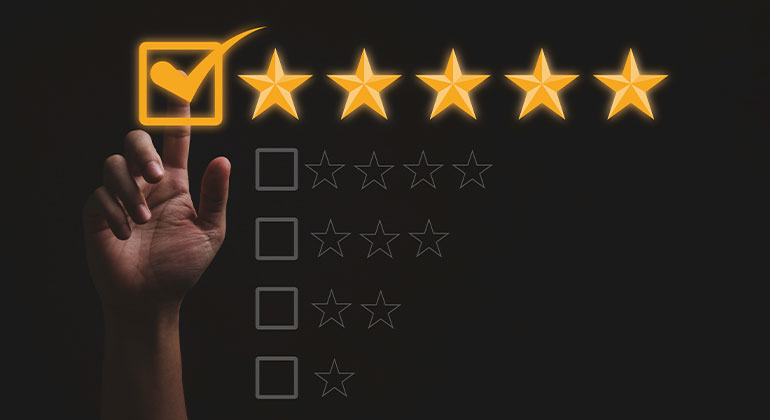CFO Mindset and Strategies
Should I get a business rating, and how will it help me?

We live in a world of reviews and ratings. We rely on ratings for almost anything we buy – a movie ticket, food delivery, selecting a hotel, shopping on Amazon or Flipkart and so on. We would like to have unbiased opinions so that we know exactly what to expect from a product we buy. So why should business ratings be any different?
Are reviews and ratings relevant to B2B products?
Our view is that though it is less visible, reviews and ratings play an even more important role for B2B products. After all, B2B purchases typically involve higher priced products and higher invoice values. Hence it is only natural that buyers would want to evaluate vendors more critically. Therefore, higher credit ratings improve the terms on which we access finance, better product ratings in B2B marketplaces increase our chances of being found, and employer ratings help us recruit better people.
Are ratings risky?
Some business owners are hesitant about getting rated. What if we get a low rating? What if there are adverse comments? Why should we unnecessarily expose our business in a way that could make existing (and happy) customers see us in a negative light? While these are all logical concerns, the truth is that in today’s business environment the benefits of being rated are huge, and in fact not being rated is actually a far greater risk!
The Benefits of a Business Rating
1 . Ratings help in gaining new business
Ratings have become an important marketing tool for getting new business. In a competitive world, when the products we sell and the prices we charge are similar to those of our competition, customers will look for quick ways to decide on a choice of vendors. They may end up using ratings to make comparisons – in which case it is important to have one. Even if the rating is not to our liking, as long as it is higher than that of our competitors, it will still benefit us.
2 . A rating increases trust
Having a rating is a signal of diligence and transparency, irrespective of the rating score. Customers (and in many cases suppliers too) are increasingly going to rely on ratings to make decisions. In this scenario, not having a rating score may cause more damage than having a poor score.
3 . A rating helps in improving business health
Too often, businesses, especially MSMEs, do not have reliable ways of diagnosing problems, and hence are unable to take immediate corrective action. Sometimes these may not cause an immediate impact, but by the time they do cause damage, it is too late to correct. For example, we may overlook overdependency on a few suppliers or customers, or not notice that a customer has been gradually decreasing offtakes every month – all of which could have come to light if we got ourselves rated and analysed the rating regularly. Hence a rating, even a poor one, is a great opportunity for making corrections and accelerating business growth.
The Vayana Good Business Score
The Vayana Good Business score is a rating specially created for MSMEs to measure business health. The score is based on many factors and works as an X-Ray and blood report for your business, providing a snapshot of what’s going well, and which areas need improvement.
The score helps your company stand out from the competition and achieve new business growth. Updating the score several times a year provides vital inputs for making the right corrections and improvements.
The score is absolutely confidential and cannot be shared without consent. So you can use it as you wish – using your score to open the doors to new business, or to use it to improve your business health and become more competitive.







